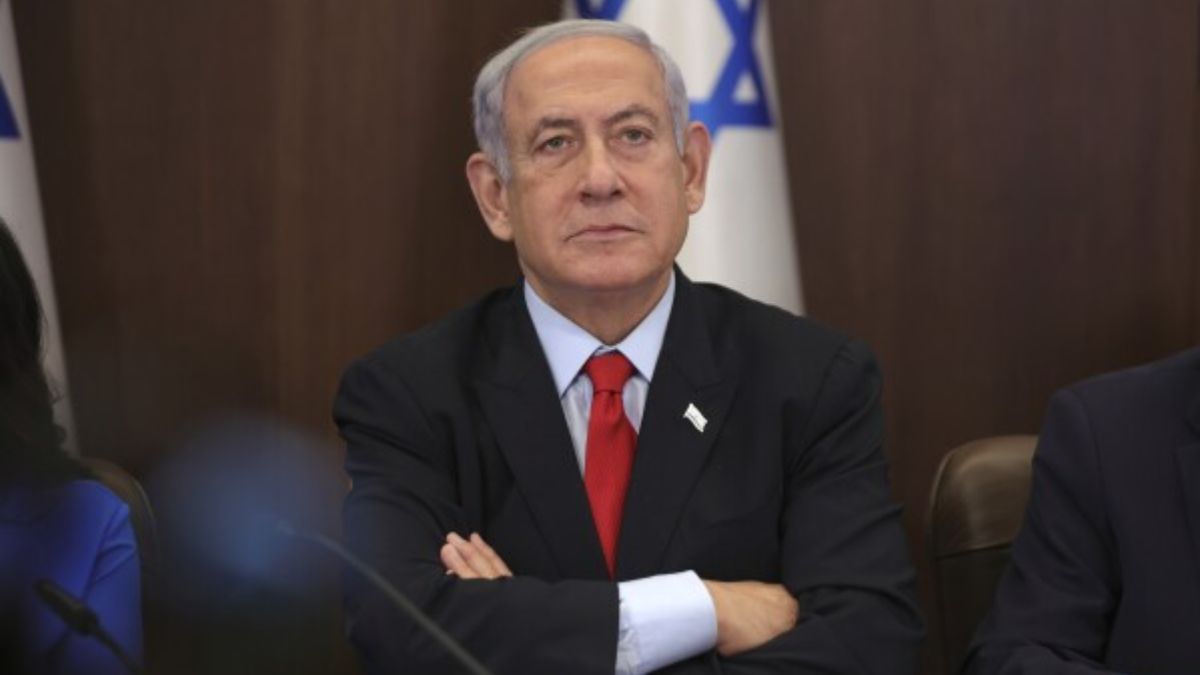While sharing his take on US President Donald Trump’s Gaza peace plan, prominent Palestinian historian and a former peace negotiator, Yezid Sayigh, told Firstpost’s Bhagyasree Sengupta that Israel’s Prime Minister Benjamin Netanyahu might attempt to sabotage the deal.
Netanyahu has been under immense pressure from both Trump and members of his coalition over the Gaza peace plan. While Trump has been calling on Netanyahu to accept the plan, far-right ministers from his cabinet are not willing to support Israel’s military withdrawal from Gaza.
While all this is happening, the Israeli Prime Minister’s popularity within Israel has taken a major hit. From bad poll numbers to frequent protests, the Netanyahu government is facing challenges as the country heads to elections next year.
In a thought-provoking conversation with Firstpost’s Bhagyasree Sengupta, Yezid Sayigh, Senior Fellow, Malcolm H. Kerr Carnegie Middle East Centre, shares his take on Trump’s plans and Netanyahu’s political ambitions.
Sayigh was an adviser, negotiator, and policy planner in the Palestinian delegation to the peace talks with Israel, 1991-2002 and advised on Palestinian public institutional reform until 2006. In the Firstpost interview, Sayigh shared his assessment on several aspects of the ongoing Israel-Hamas war; Trump’s Gaza peace plan, the crisis in the West Bank and the West’s calls for a two-state solution.
On Trump’s Gaza peace plan
While sharing his take on Trump’s peace plan, Sayigh said that the proposal is “deeply flawed”. However, he pointed out one positive element of the deal.
“Trump’s plan is very deeply flawed, very problematic. There’s one reference to Palestinian statehood, but it doesn’t commit to that There are other problems, mostly that as soon as Hamas has delivered on its side of the agreement, which is to release Israeli hostages remaining in its hands, and then to lay down its weapons, and to accept not to take part in governing Gaza in the future, what is not so clear is the timetable and the terms for full Israeli withdrawal from the Gaza Strip, and how we move from there to a meaningful political dialogue that reaches any form of self-determination for the Palestinian people,” Sayigh told Firstpost.
“If we look at it as a whole, then you see that this is a plan that in a way almost seems designed to do one thing, and that is to derail and diffuse and deflect the massive growth in international public opinion opposed to what Israel has been doing in Gaza, to Israeli use of famine as a weapon of war. Growing number of significant states in the G7 group, for instance, that have recognised the state of Palestine and that could potentially start taking more material concrete steps, such as reducing Israeli trade access to the European Union markets, or access to research and scientific cooperation and grants, and so on.”
Sayigh maintained that Trump’s proposed peace plan does little more than block the plan that’s already been produced, referring to the reconstruction frameworks proposed by the UN or the League of Arab states, which were championed by Egypt and supported by Saudi Arabia.
However, the Palestinian historian pointed out one positive aspect of the deal, i.e. the establishment of the International Stabilisation Force in Gaza. “There is, I think, one element to the Trump plan that is really interesting and potentially really positive, and this is that the Trump Plan calls for the immediate withdrawal of Israeli forces to a midway point in Gaza. That is maybe of minor significance. What’s more important, I think, is that the Trump plan calls for the immediate deployment of an international stabilisation force in Gaza, which will gradually take over more and more of Gaza while the Israeli forces withdraw entirely to the border perimeter and to a sort of, you know, security perimeter,” he said.
“What this means is that for the first time in 57 years or 58 years since Israel occupied the Gaza Strip, Gaza will become under international control and will basically completely escape Israeli control. There will be no reason for Israel to, and hopefully no opportunity for Israel to intervene militarily to re-enter the territory.”
He also pointed out how Trump’s plan also put a great deal of emphasis on economic growth, development, reconstruction, and revival of Gaza, “none of which can happen unless Gaza finally gains, after 58 years, free direct access to the international markets.”
“So, if we think about the military side of this, it comes under international control; the governance side comes under international control, which then secures Israeli security interests and therefore should allow Gaza free access to the world. That is a huge transformation,” he said.
Boon for Gaza, bane for Netanyahu
Sayigh explained that while the Trump proposal has the potential to open the door for Gaza, it can also draw ire and attempts of sabotage from Netanyahu. “Israeli Prime Minister Benjamin Netanyahu will do everything he can, using any justification, to sabotage the ceasefire, whether in days or weeks or two months or so I think that for him, this represents what he would regard as an existential political threat, that Gaza will become independent of Israeli control, and that the majority of the world’s nations that have recognised the state of Palestine will then say, we now have independent Palestinian territory, and this is the first part of the state of Palestine, and therefore to start pushing for its full admission into the United Nations, with all the rights and obligations that then follow,” he told Firstpost.
When asked about the domestic pressure Netanyahu is facing from the far-right and his poor approval ratings, Sayigh reiterated that the Israeli premier would “will find every way he can to delay, to push things away and eventually to, you know, cry foul and accuse Hamas of something and then go back to war.”
“Will find every way he can to delay, to push things away and eventually to, you know, cry foul and accuse Hamas of something and then go back to war. Not a plan that allows for the Palestinians to have any kind of autonomous existence or control over their own lives, which is what most of the rest of us want and seek. Netanyahu is ideologically opposed to this. He’s been honest about one thing, and that is his total opposition to Palestinian statehood,” Sayigh said.
“He had said the day after accepting the Trump plan that Israel would forcibly prevent Palestinian statehood. So he’s already, you know, violating and undermining the plan. So I don’t think we’re going to get to the point where he is actually at risk of losing office as prime minister, because he loses his far-right allies. He will manoeuvre and navigate until the ceasefire collapses. In theory, of course, we could see a more positive outcome, where Netanyahu was forced to shift his approach. But I think partly the problem here is that the Israel we’re looking at today is not the Israel that was established in 1948.”
“He will face elections next year. That’s a lot of time for him to manipulate things. And we’ve seen that he’s been willing to go to war, or to launch attacks on, you know, seven Arab countries, including going to war with Iran. And all this suggests to me someone who’s using war as an alternative for politics, and to ensure that he continues his radical right-wing agenda for Israel itself,” he furthered.
The state of Israeli opposition
The Palestinian historian went on to talk about how Israel has transformed socially, demographically, internally, and politically in the past 10 or 20 years. “The set of understandings between the Labour Party and the Likud Party, the old sort of centre left, centre right divide, the ultra orthodox community, the Mizrahi, Sephardic or Eastern Jewish community, those understandings that governed Israel for 50 or 60 years, have basically collapsed. Israel is a new territory,” Sayigh said.
“I don’t think there is an opposition in Israel that is genuinely worthy of the name. There is a lot of genuine opposition among Israelis to aspects of the far-right agenda, especially on judicial reform, that ensure that the executive branch escapes judicial oversight. But moving beyond that, if you ask that same opposition what they propose, in terms of the relationship with the Palestinians, they don’t differ radically from what the right in Israel pursues.”
“They are not committed to Palestinian statehood, they are not committed to equal rights for Palestinian citizens, and so on. I fear that no force within Israel poses a genuine challenge to Netanyahu,” he added.
Sayigh recalled that right before the October 7 attack, he shared a different perspective on the challenges the Netanyahu government was facing with the judicial overhaul protests. “I thought he would weaponise war to serve his political needs domestically, and to keep the war going to outlive the drop in approval until various political conditions improved and allowed him to remain in office. And I think that is still true,” he said.
End of Article

)

